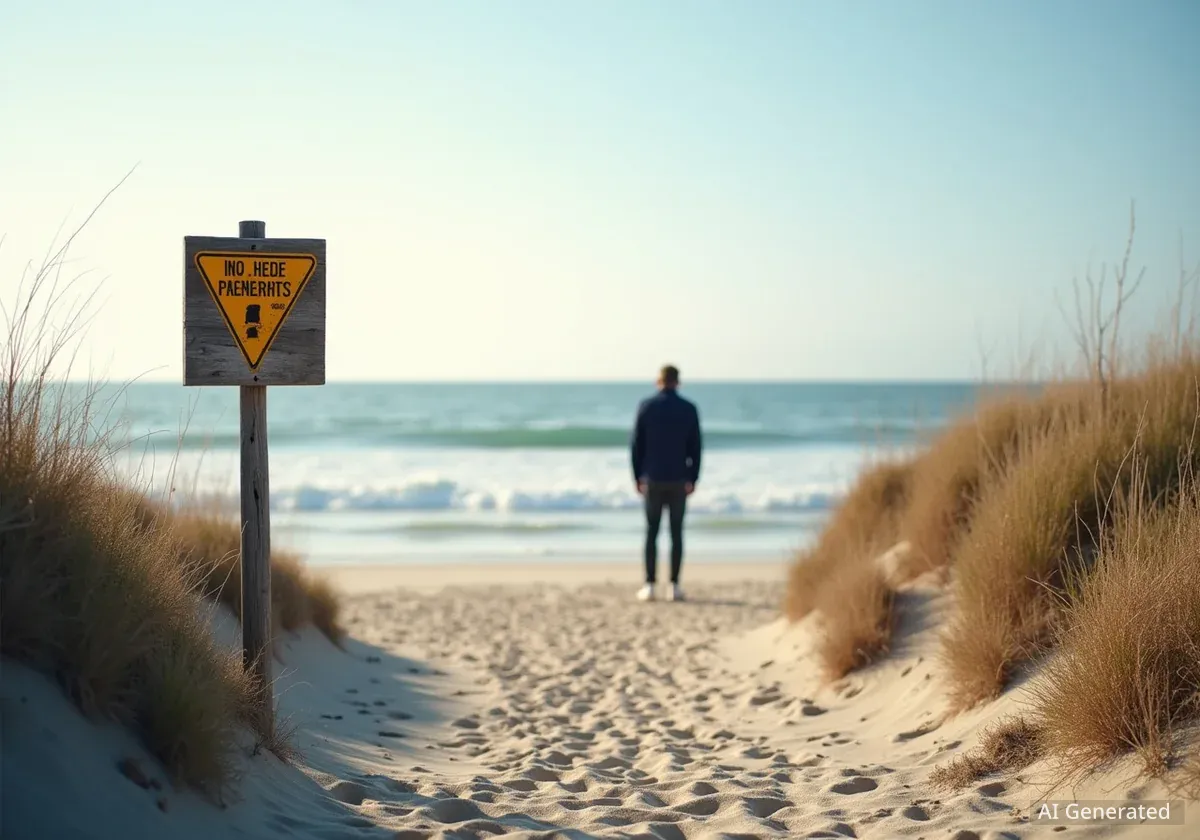Tulum residents are expressing significant concern regarding new restrictions on public beach access, citing changes that now require reservations at beach clubs or full payment for entry. These changes are impacting long-term residents who previously enjoyed free access to the area's renowned public beaches.
Key Takeaways
- Tulum residents report new restrictions on public beach access.
- Access now often requires a reservation at a beach club or a fee.
- Long-term residents, including those with official cards, face denial.
- Concerns are rising over the loss of free public access to beaches.
Changes Affecting Long-Term Residents
Many individuals who have made Tulum their home for years are now facing difficulties accessing the public beaches. For over eight years, one resident and their spouse have lived in Tulum, drawn by the natural beauty of the area, particularly its beaches. They explain that they cannot afford the high prices charged by private beach clubs for food and beverages.
Instead, they prefer to bring their own beach chairs, umbrellas, and a small cooler. This allows them to spend the day on what they understood to be a public beach. However, recent changes have altered this long-standing practice.
"We can’t afford to go to the Beach Clubs and pay the high prices for food and beverage. We have beach chairs and umbrellas and a small ice chest we pack in and spend the day on the PUBLIC beach."
Denied Entry Despite Resident Cards
The resident further detailed an incident where they attempted to access the beach using a card issued to Tulum residents. Despite presenting this official identification, they were informed that entry would only be granted with a reservation at one of the adjacent restaurants or by paying the full price for access.
This policy directly contradicts what many residents believe should be their right to free public access. The denial of entry, even with a resident card, highlights a significant shift in beach management.
Fact Check
Google Maps currently lists a location as "Playa Maya Playa Publica" in Tulum. This indicates that at least some areas are officially designated as public access points.
Impact on Local Lifestyle and Tourism
The changes are not just affecting daily routines; they are altering the very reason some people chose to live in Tulum. The ability to enjoy the natural environment freely is a core part of the local lifestyle for many. These new policies, while potentially aimed at managing crowds or generating revenue, are creating a barrier for the local population.
While the resident understands rules against bringing alcohol or paying for parking, the complete removal of free access is seen as unjust. The situation raises questions about the balance between commercial interests and public rights to natural resources.
Historical Context of Public Access
Historically, many beaches in Mexico, including those in Tulum, have been considered public property. This means that while private entities can operate on adjacent land, a strip of the beach itself, typically up to the high tide line, remains accessible to everyone. The current restrictions appear to challenge this traditional understanding.
The concept of public beach access is crucial for local communities, providing recreational opportunities and supporting a way of life that depends on the availability of these natural spaces. The ongoing situation in Tulum is drawing attention to these long-held rights.
Background Information
Tulum has experienced rapid tourism growth in recent years. This growth has led to increased development, including numerous beach clubs and resorts. The demand for beachfront property and exclusive experiences has sometimes conflicted with traditional public access rights.
Seeking Resolution for Community Concerns
The concerned resident expressed hope that the issue would be resolved. Their letter to the editor indicates a desire for local authorities to reconsider the current policies and ensure that public beach access remains free and available to all residents, not just those who can afford private club services.
Community members are looking for clear communication and transparent policies that respect both the growing tourism industry and the rights of long-term residents. The resolution of this issue could set a precedent for other rapidly developing coastal areas.
- Residents are advocating for renewed free access to designated public beaches.
- The situation highlights potential conflicts between local rights and commercial development.
- Many hope for a balanced solution that supports both tourism and the local community.
Broader Implications for Coastal Communities
This issue in Tulum is not isolated. Similar debates about public versus private beach access occur in various coastal communities worldwide. As popular destinations grow, managing resources and ensuring equitable access becomes a complex challenge for local governments.
The outcome in Tulum could influence how other regions approach the delicate balance of tourism development and community welfare. It underscores the importance of clear regulations and community engagement in urban planning and resource management.





